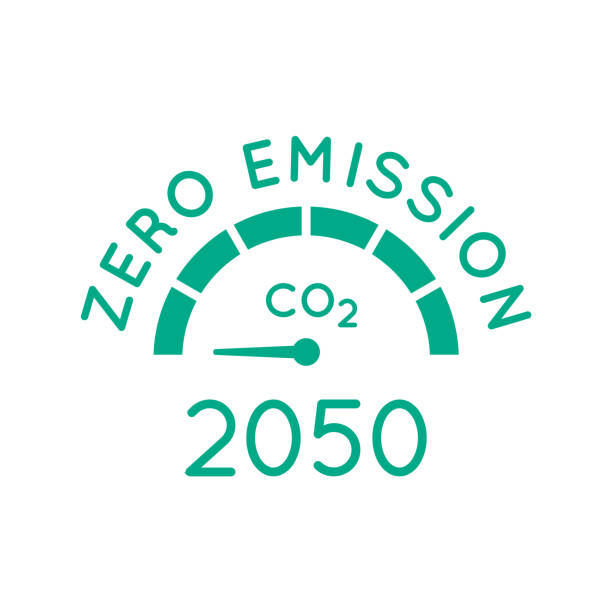ABSTRACT
As the world grapples with the urgent need to combat climate change, achieving net zero emissions has emerged as a critical goal.
The concept of “net zero emissions” emerged as a response to the growing recognition of the need to limit global warming to mitigate its adverse effects. The idea revolves around achieving a balance between greenhouse gas emissions produced and the removal of those emissions from the atmosphere.
This research paper examines the impact of transitioning to a net zero emissions economy on economic growth and job creation, while investigating the potential economic opportunities and challenges associated with this transition. The study begins with an understanding of net zero emissions and the global efforts towards achieving this goal. It then explores the economic opportunities linked to transitioning, such as the growth of renewable energy industries, job creation, and enhanced technological innovation. Additionally, the paper discusses the economic challenges that arise during this transition, including costs and financing hurdles, disruptions to existing industries, socio-economic implications, international trade concerns, etc. To support the findings, case studies of countries and regions that have made progress in transitioning to net zero emissions are presented. The research also provides policy recommendations to navigate these challenges, including implementing comprehensive renewable energy policies, promoting energy efficiency measures, fostering innovation and research, ensuring a just transition for affected workers and communities, strengthening international cooperation, and establishing monitoring and reporting mechanisms.
LITERATURE REVIEW
Numerous research papers have explored the economic implications of transitioning to a net zero emissions economy, shedding light on both opportunities and challenges. The International Renewable Energy Agency (IRENA) conducted a comprehensive study on “Renewable Energy and Jobs: Annual Review,” revealing that investing in renewable energy can lead to substantial job creation and economic growth, with the renewable energy sector outperforming fossil fuel industries in job generation per unit of investment (IRENA, 2018). Additionally, the International Labour Organization (ILO) has conducted research on the “Employment Implications of Decarbonization,” emphasizing the need for a just transition to support workers and communities affected by the shift to cleaner industries (ILO, 2019).
While these studies have provided valuable insights, some aspects remain unresolved in the existing literature. First, a comprehensive analysis of the economic challenges associated with transitioning to a net zero emissions economy is needed to understand potential barriers and devise effective mitigation strategies. Second, there is a lack of detailed investigation into the role of international agreements and meetings in shaping the concept of net zero emissions and influencing global commitments towards this transformative goal.
This paper aims to address these gaps by examining both the economic opportunities and challenges, along with the influence of international meetings like COP21 in Paris on the decision-making process towards a net zero emissions economy. By offering a holistic understanding, this research contributes to formulating robust policy recommendations to facilitate a successful transition while fostering sustainable economic growth and job creation. Understanding the interplay between global commitments and economic implications is crucial for advancing towards a greener and more resilient future.
DATA METHODOLOGY
To examine the impact of net zero emissions on economic growth and job creation, this study employs a mixed-methods approach that combines quantitative and qualitative data analysis. The study relies on secondary data sources to provide a comprehensive analysis.
Secondary data sources include scholarly articles, reports, and databases from reputable sources such as academic journals, international organizations, and government agencies. These sources provide valuable quantitative data on energy consumption, emissions, economic indicators, employment trends, and policy frameworks.
Furthermore, a comparative analysis of case studies from countries or regions that have made progress in transitioning to a net zero emissions economy have been conducted. These case studies will provide empirical evidence of the economic opportunities and challenges experienced during the transition, allowing for a nuanced understanding of the various factors influencing outcomes.
DEFINING NET ZERO EMISSIONS
Net zero emissions refers to achieving a balance between the amount of greenhouse gasses emitted into the atmosphere and the amount removed or offset. It involves reducing greenhouse gas emissions to the maximum extent possible and balancing any remaining emissions through methods such as carbon sequestration or offsetting. This process refers to the process of capturing and storing carbon dioxide (CO2) from the atmosphere or other sources to mitigate its impact on climate change. This can involve activities such as reforestation, where trees absorb CO2, or technological solutions that capture and store emissions from industrial processes. The goal is to balance out or “offset” carbon emissions by removing an equivalent amount of CO2 from the atmosphere, contributing to net zero emissions.
The ultimate objective is to limit global warming to well below 2 degrees Celsius above pre-industrial levels, as stated in the Paris Agreement.
By achieving net zero emissions, we can stabilize and eventually reduce greenhouse gas concentrations in the atmosphere, thereby curbing the pace of global warming.
Click Here To Download The Paper


📌Analysis of Bills and Acts
📌 Summary of Reports from Government Agencies
📌 Analysis of Election Manifestos

